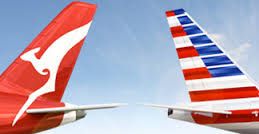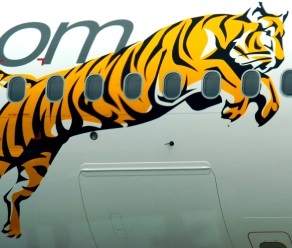American, Qantas assess Pacific options after axing alliance bid
28 November, 2016
4 min read


American Airlines and Qantas are reassessing their trans-Pacific options after failing to gain anti-trust immunity for an expanded alliance.
The airlines announced on Tuesday that they were abandoning their push for the expanded alliance after the US Department of Transportation refused to grant an extension allowing them more time to respond to its proposed rejection of their application on competition grounds.
Qantas warned the decision would leave the airlines “severely limited” in their ability to grow on trans-Pacific routes and that each carrier would now have to re-assess its trans-Pacific network.
But both carriers confirmed the decision would not affect customers at this stage, with no changes to codeshares, reciprocal frequent flyer schemes or lounge access.
“Codeshares remain in place, the current network and schedule remains in place for Qantas,’’ a Qantas spokeswoman said. “Lounge access is still the same, earn and burn is still the same’’.
An American spokesman said there were also no changes planned at this time to new services to launched in the past year to Sydney and Auckland.
"We’re always evaluating our network but the bottom line is we’re committed to our partnership and we’ll continue to look for opportunities to work together going forward,’’ he said.
The airlines had applied to expand their joint business agreement to a full alliance similar to the one Qantas has with Gulf carrier Emirates that would allow them to operate “metal neutral’’ joint flights alongside each other.
This would allow them to coordinate functions such as scheduling, network planning, sales, customer services and capacity decisions, something the carriers argued would allow them to better compete across the Pacific and expand services.
Competition regulators in Australia and New Zealand had given the deal a green light but the DOT found it would harm competition due to the 60 per cent market share the partners would command. Approval from all three regulators was needed to allow the airlines to commercially co-operate in all markets and receive anti-trust immunity.
A key problem for the airlines was the limited time they were given to respond to the decision — just 14 days — despite the fact it had taken 17 months to deliver.
“ When the Department of Transportation issued its Order to Show Cause, it was clear it would take longer than the 14 days they gave us to respond and the DOT refused to give us an extension to fully demonstrate the benefits of our position,’’ American said in its statement.
“We remain very disappointed in the decision. It represented a significant departure from prior DOT decisions, which have long recognized the pro-competitive benefits of combining complementary international networks. ‘’
Qantas said the decision was not just disappointing for the airlines but also for customers and ultimately for trade between the United States and Australia.
It pointed to the differences between the US finding and those of Australian and New Zealand regulators that the expanded partnership involved no detriment and would deliver significant benefits for consumers.
Key benefits already delivered by the alliance included the new American routes from Los Angeles to Sydney and Auckland as well as Qantas services to Dallas and San Francisco, it said.
“As anticipated in our application, there has been a strong competitive response from other airlines on the trans-Pacific, including additional capacity,'' the airline's statement said. “Fares on the trans-Pacific have fallen since the expanded partnership was announced.
“Qantas and American Airlines will now separately assess their positions before deciding on next steps. Both carriers are committed to finding ways to work together more closely to deliver benefits to customers that neither could offer alone.”
It is not clear whether this is a definitive end for the enhanced alliance or whether the airlines will re-group and try again.
Asked whether the airlines would refile the application in a different form, the American spokesman said : ”We haven’t determined the path forward, we’re considering all of our options.’’
Next Article
Virgin gets nod for Tiger deal

Get the latest news and updates straight to your inbox
No spam, no hassle, no fuss, just airline news direct to you.
By joining our newsletter, you agree to our Privacy Policy
Find us on social media
Comments
No comments yet, be the first to write one.
